Hit hard by coronavirus, Swiss hotels weigh survival options
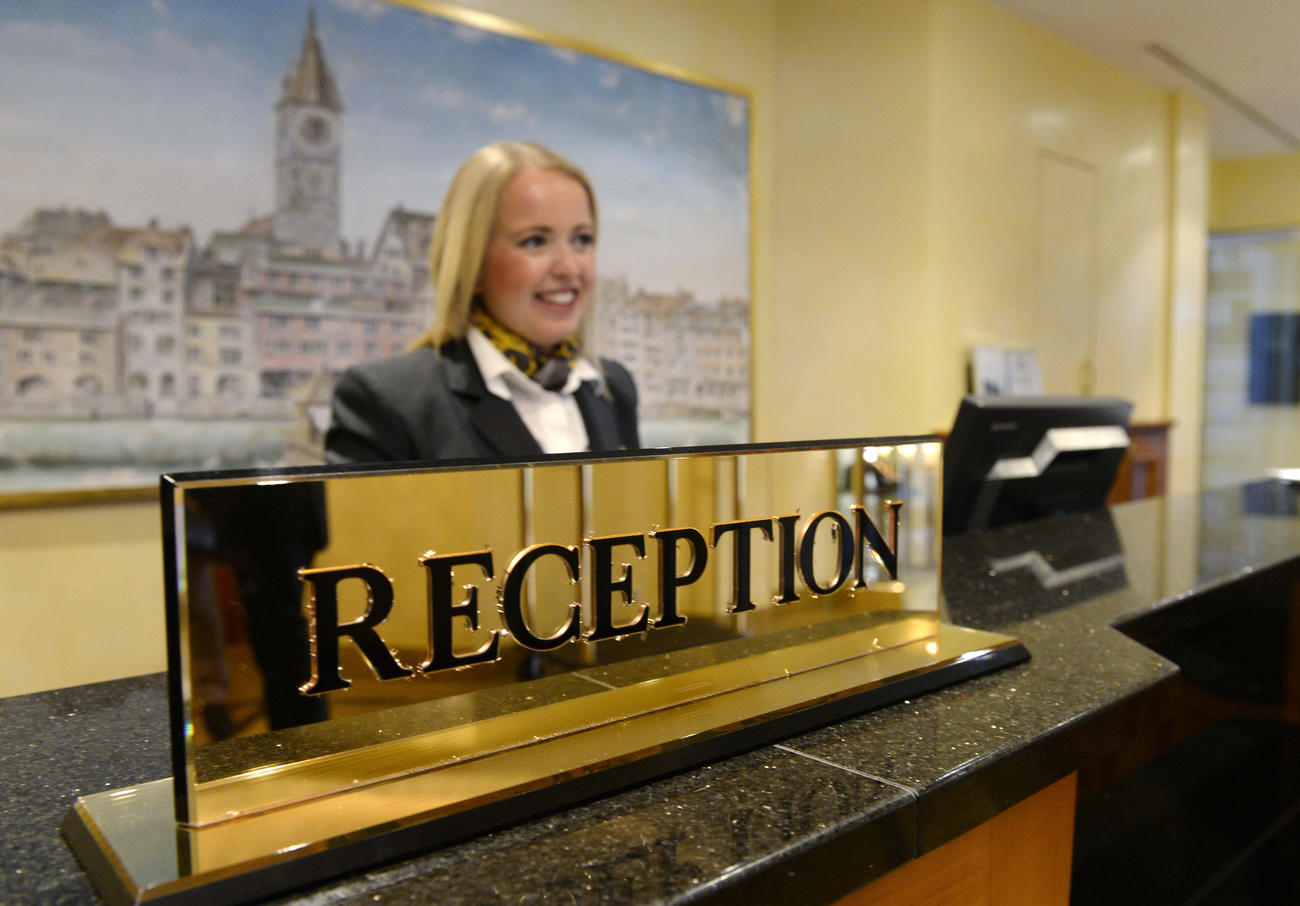
With ski resorts closed and travel effectively banned, hotel bookings in Switzerland dropped by 90% in April, leaving the sector in a difficult position.
Under the government measures imposed in late March, hotels, in contrast to restaurants and non-essential shops, may still receive guests, provided they comply with rules on hygiene and social distancing. But bookings have dropped so dramatically that they have had to weigh up whether it is worth staying open.
According to a survey of hotel owners by the Haute Ecole du Valais, 57% of establishments in the country have since closed and 21% have partially closed. The survey also found bookings fell by 69% in March, 90% in April and 73% in May.
Hotel owners surveyed estimate their risk of bankruptcy to be about 23%.
Frank Fleury, who manages some Ibis and Novotel hotels in the French-speaking part of the country, told the Keystone-SDA news agency that “a hotel costs money, since there are many annual contracts with suppliers. Closing would only be worthwhile if the occupancy rate fell below 5%.”
He said this was not the case in March, although bookings were down 70%; they are also down 98% for April. Even with other cost cutting measures, including putting some employees on short-term work, “we lost several hundred thousand francs,” says Fleury.
Another survey by the BAK Economics thinktank found that the hotel and restaurant sector is one of the hardest hit by the coronavirus pandemic. It estimates that added value in the hotel and restaurant industry will drop by a fifth in 2020, compared with 2.5% for the economy as a whole.

More
Coronavirus: the situation in Switzerland
According to the research institute, hotels are likely to be harder hit than restaurants, since they are heavily affected by international travel, which may not benefit from an easing of measures locally.
Another survey from late March estimated that the hotel sector could lose CHF2 billion between March and May.
Andreas Züllig, President of the Swiss Hotel AssociationExternal link, told CNN Money Switzerland that he predicts 5% of Swiss hotels – from 200 to 250 – won’t survive the pandemic. Those with less than a dozen rooms face the most difficulties, he said.
Reimbursing guests?
Hotels have different approaches to dealing with the wave of cancellations, according to the Valais survey. Fleury says that they have been reimbursing guests on a case by case basis. “Refunding all cancellations could have exposed us to cash flow problems,” he says. Sometimes bookings were pushed to another date, but this isn’t possible in all cases.
At the Hotel Schweizerhof in Lucerne, all guests were required to pay the cancellation fee – according to conditions in the contract – but were refunded half of these charges in vouchers to be used for a hotel stay at a later point. When the cancellation is due to the cancellation of an event in connection with the government regulations, the hotel issued vouchers for the entire cost of the stay.
“The legal issues surrounding cancellations are complex. You have to assess each individual case,” said Karin Sieber, spokesperson for Hôtellerie Suisse. She adds that it remains possible to charge a guest if they are able to arrive, and if the hotel is able to offer its services.
If a guest decides to cancel a booking because a ski resort is closed, this may be an understandable but not a legally valid reason to receive reimbursement, according to Sieber.
And in most cases, pandemic-related losses are not covered by insurance, she says.

In compliance with the JTI standards
More: SWI swissinfo.ch certified by the Journalism Trust Initiative











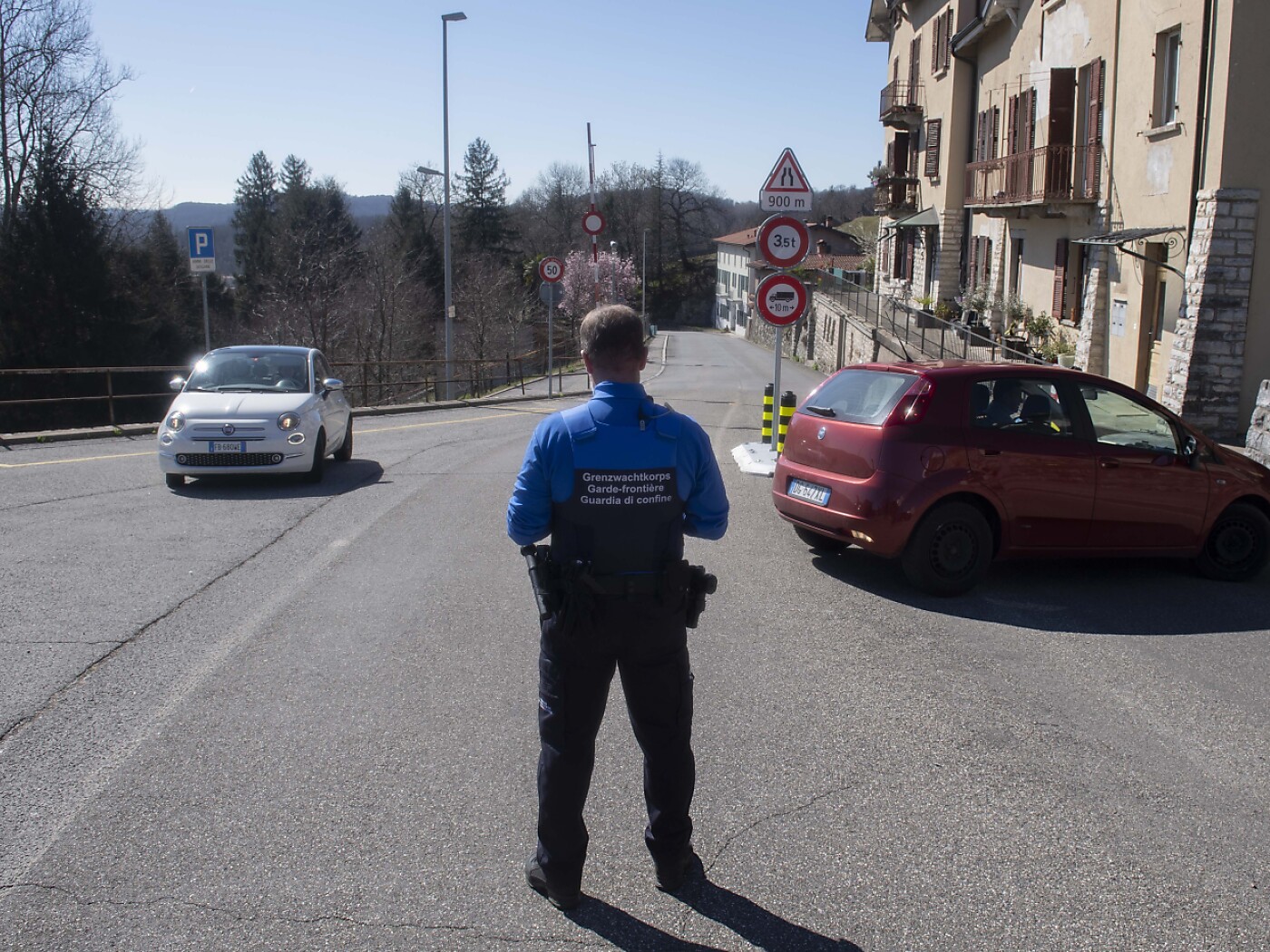
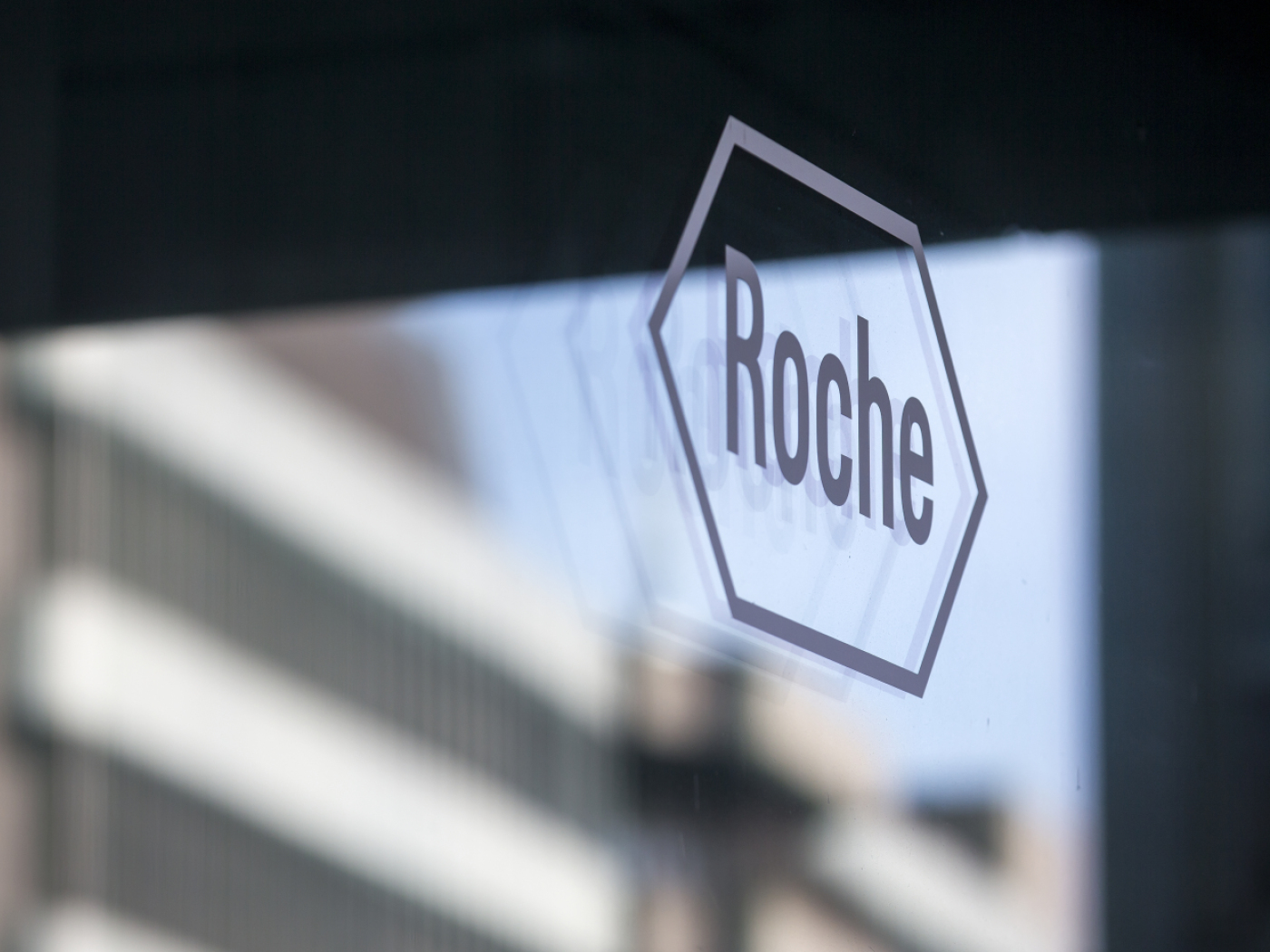





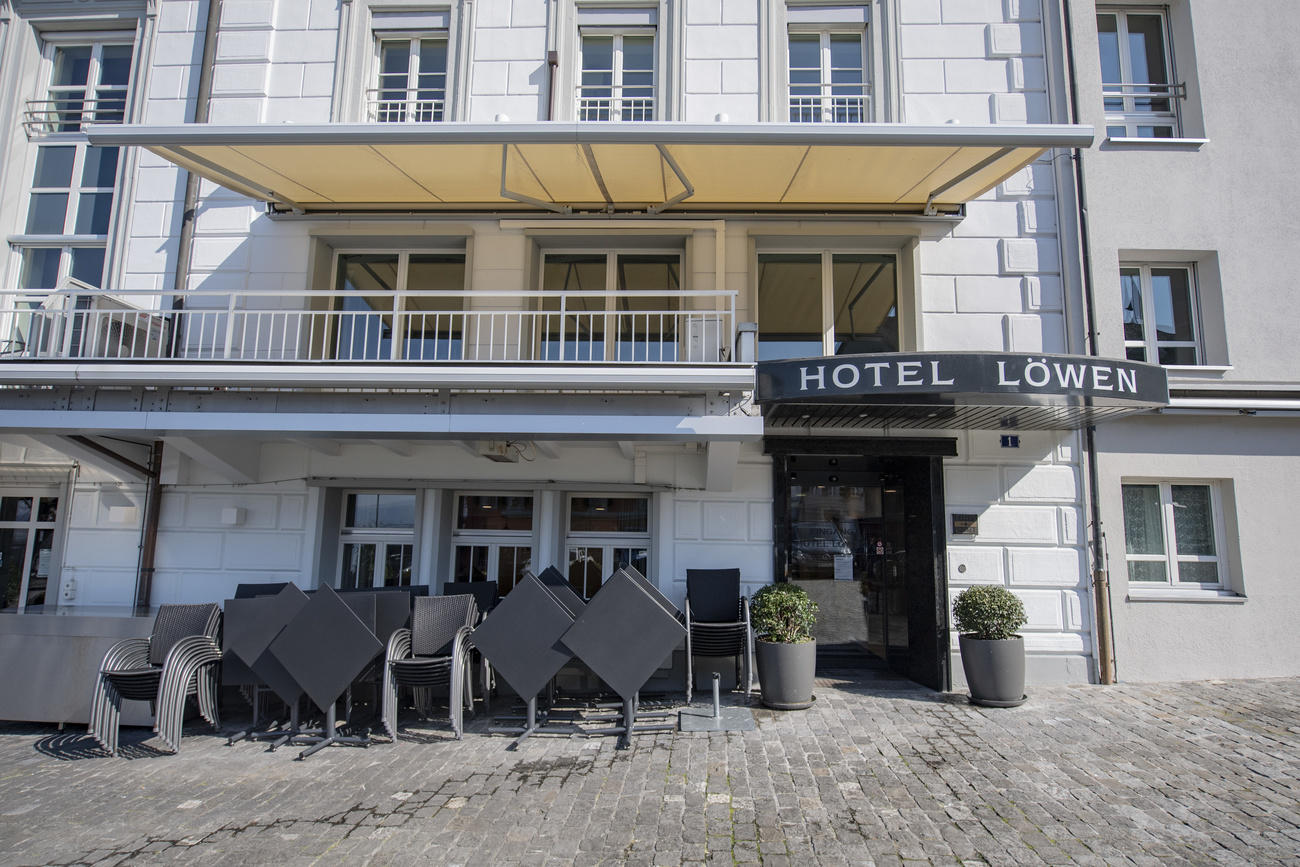
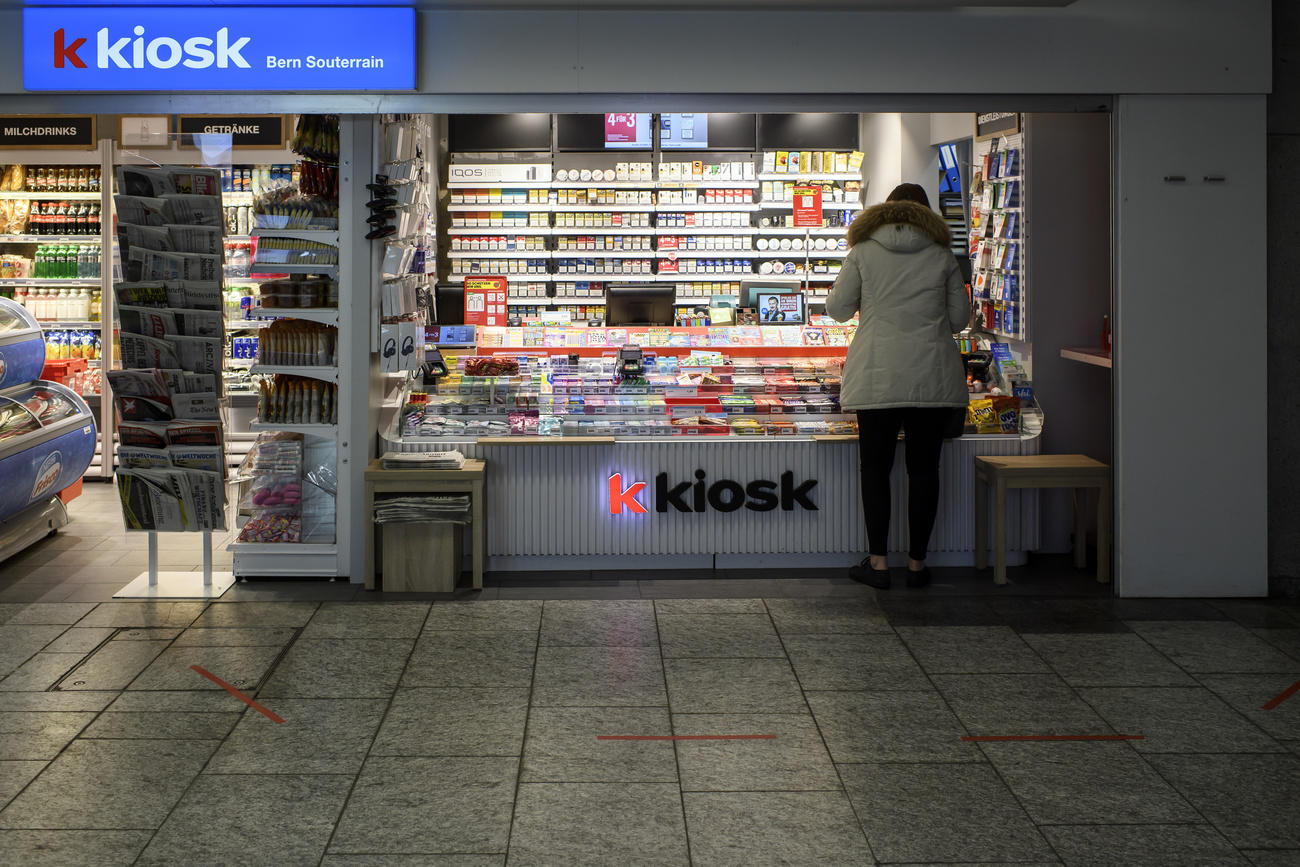
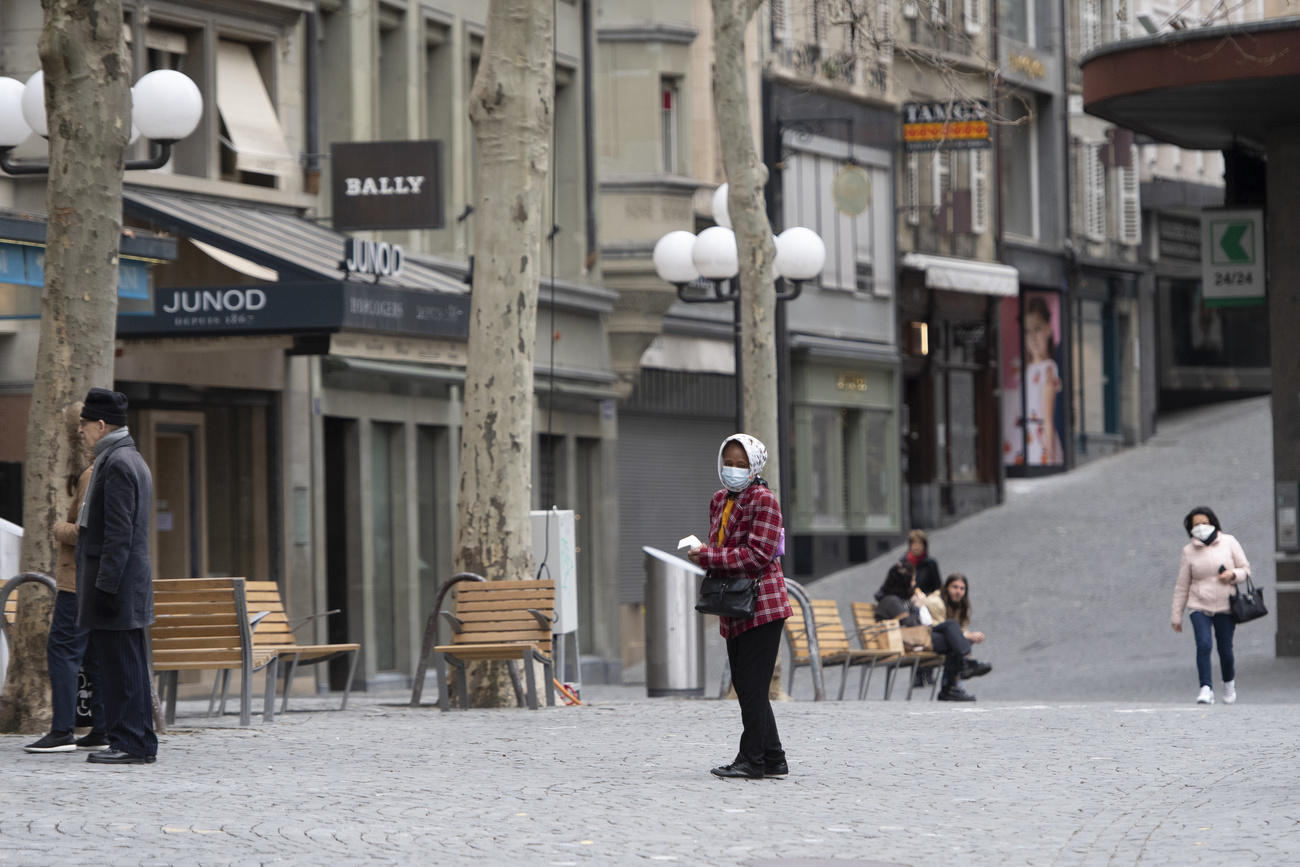
You can find an overview of ongoing debates with our journalists here . Please join us!
If you want to start a conversation about a topic raised in this article or want to report factual errors, email us at english@swissinfo.ch.